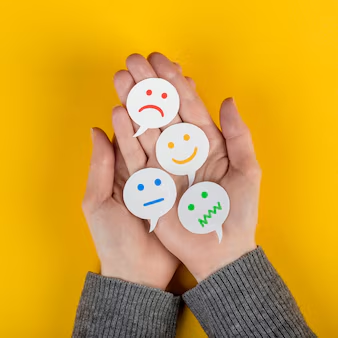Today, being Father’s Day, I’ve naturally been thinking about my Dad. He was such a role model for me in facing change with courage and resilience. There were several times when my Father had to change his identity almost instantly by circumstances completely out of his control. In fact, in one distinct occasion he literally was released from a hospital with the challenge of recuperating and starting from scratch in remaking a career. But my Father had a very strong determination to change his identity as needed, not dwelling on what was lost, but seeing new possibilities in what he had to gain. So in his honor, I did some reading about the topic of identity and change. In doing so I was amazed at how he had instinctively done just what the research shows are the recommended steps for successful transformation.
Researchers Madeline Toubiana, Trish Ruebottom and Luciana Turchick Hakak (Harvard Review) conducted hundreds of interviews with people who had gone through various kinds of positive or negative identity shifts. They found that many people experienced a sense of stuck-ness, or as the authors called it, identity paralysis, in which their sense of self couldn’t keep up with their new role. This tended to happen especially when a major change was forced on someone. But they also noticed a pattern of people who were able to make the identity shift and were open to growth in contrast to stuckness. From their work, they outlined five strategies that enabled people to move forward with change, whether they were happy about it or not.
The first strategy was to acknowledge a distinct break from the past. Many of the people they interviewed noted an event or moment that marked an acceptance of the change. For many, it was like a tipping point, in which they felt a break with the past and the beginning of something new. The particular event or experience was not as important as the fact that there was a symbolic shift to a new way of being. Some examples include packing away an old uniform or getting a new day planner. The act itself may be small, but it carries a meaning of a new beginning and creates a ritual of letting go and becoming open.
A second strategy was creating a narrative about your transition that links your old self to your new self. In this way you tie up loose ends of who you used to be. For example, someone who left a high paying job to do something simpler can shape their story around the importance of sacrifice in becoming a better parent. Or in the case of someone who is moving beyond a troubled past, they may tell their story in terms of their past behavior shaping who they are now, how they moved from darkness to light. Having a narrative helped people to weave their past into the present without needing to hold on to it.
A third strategy involves acknowledging not just the facts, but the emotions that can get stuck in the past. Frequently anger, sadness, shame, or hopelessness can be an anchor that weighs us down. Researchers noted that people who were able to work through the feelings that were holding them back had a better chance of being open to their future self. This might include letting go of shame, forgiving yourself or someone else, or refocusing your energy in a new attitude and reframing your feelings. For example, instead of allowing herself to be stuck in shame after she lost her job, a researcher noted how one interviewee had worked to shift her feelings into pride in starting her own business.
The next strategy involves broadening your identity. Research shows it is possible to have a number of identities at the same time. If you are uncomfortable with your identity in one area of your life, you can shift your focus to another aspect of your identity as a way of coping and getting through a difficult transition. Recognizing we are all composites of many identities can help you feel more resilient when one identity is challenged.
And the final strategy outlined was perhaps what I remember most about my Father’s process of resilient change. He had a great imagination for visualizing what might be possible. Researchers noted that people who were most comfortable in their new identities were people who imagined their current circumstances were stepping stones in a path to their ultimate desired future. Fantasy was, in fact, a great beacon of hope to the future, even if for some interviewees, the fantasy was objectively unrealistic. What was important was to have an abstract future, a daydream, that they could lean into in order to see beyond their past, and even through their challenging present.
My Father earned a PhD in science when he was 25. Despite leaving the field and having a career trajectory that led him way outside of chemical engineering, he didn’t let that stop him when he lost his business in1990. He had been shot during a robbery at his transmission shop and nearly died. But after a long recovery, my father brushed off his degree from 1955 and made his way back into his beloved world of science (much changed over thirty years). With mostly his own conviction and dream to rely on, he became a consultant for several companies across the country experimenting with polymer chemicals. It took some time and some u-turns, but I had never seen my Dad happier than when he was off to the airport with his briefcase. And I do not exaggerate when I tell you that he had to carry an x-ray because he triggered the airport security screening with metal pellets from his gunshot wound that still were embedded inside him. The man who shot my Dad was never caught and my Dad never was able to reclaim the business he had lost, but to him, it didn’t matter. Dr. Leonard Weissbein was too busy conjuring up experiments and postulating formulas.
Happy Father’s Day, my dear Dad. In your honor, I just read an abstract I found online from a journal article you wrote in 1960!! From the Textile Research Journal, Volume 30, Issue 1: The Physical State of Direct Dyes in Viscose and its Influence: Part I: A Method of Examining the Physical State of Direct Dyes in Viscose. Sure wish you were here to explain it to me!!

























